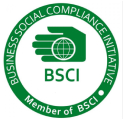Knapmod is a leading apparel manufacturer in Pakistan has the own WRAP factory,
Our clothing factory has passed most garment bulk production quality audit and social responsibility audit, they are OEKO-TEX, BSCI, BV STANDARD SA, EICC, FLA SCI, GOTS, GOLS, ICTI CARE, ISO 900, SA800, SMETA, REACH (BV, ELEVATE, INTERTEK, UL, SGS, TUV), ULRSWA, ITS WCA, WRAP etc. (after this add labels and then explain few of the certificates)












OEKO-TEX STANDAR 100
OEKO-TEX Standard 100 was formulated by OEKO-TEX International Environmental Textile Association in 1992. There are now 16 testing associations whose main task is to test textiles for harmful substances to determine their safety. OEKO-TEX Standard 100 is now the most widely used eco-label for textiles. The standards set by OEKO-TEX Standard 100 are based on the latest scientific knowledge and define limits for the content of harmful substances in yarns, fibres and various types of textiles. Only producers who provide a verifiable guarantee of quality according to strict testing and inspection procedures are allowed to use the OEKO-TEX label on their products.
GRS-GLOBAL RECYCLED STANDARD (GRS 4.0)
The Global Recycling Standard (GRS) is a voluntary product standard for tracking and verifying the content of recycled materials in final products. The standard applies to the entire supply chain, covering traceability, environmental principles, social requirements, chemical composition and labelling. GRS covers the processing, manufacturing, packaging, labelling, trade and distribution of all products that use at least 20% recycled materials. It also specifies third-party certification requirements for recycled content, chain of custody, social and environmental practices, and chemical restrictions.
GREEN TEXTILES CLUB
The main objective of the GREEN TEXTILES CLUB project is to promote the competitiveness of SMEs in the textile and apparel industry by creating a sustainable company club (GREEN TEXTILES CLUB) to exchange experiences and develop common strategies for the industry, ST and P of OEKO-TEX® (Sustainable Textile Production) certification and a combination of quality management and risk management (ISO 9001:2015) for sustainable company development.
BSCI
BSCI factory audit refers to BSCI (Business Social Compliance Initiative), that is, the social responsibility audit conducted by the business community to abide by the social responsibility organization of the global suppliers of BSCI organization members, mainly including: compliance with laws, freedom of association and collective bargaining rights, prohibition of discrimination, Compensation, working hours, workplace safety, prohibition of child labor, prohibition of forced labor, environment and safety. BSCI has attracted more than 1,300 members from 11 countries, most of them are retailers and buyers in Europe, they will actively promote their suppliers in countries around the world to accept BSCI audits to improve the human rights of their suppliers
WRAP
The Universal Apparel Production Social Responsibility Principles are the core criteria for production facilities participating in the WRAP Certification Program. The project is to independently monitor and certify that manufacturing complies with these global social responsibility standards and to ensure that products are produced under legal, humane and ethical conditions. The WRAP Certification Program firmly believes that factory-based certification is the most effective way to ensure workplaces comply with WRAP’s production principles. The WRAP program places the primary responsibility for improving workplace conditions on owners who own and operate sewn product manufacturing facilities
SMETA
The full name of SMETA is Sedex Members Ethical Trade Audit (Sedex Members Ethical Trade Audit). It is one of the most commonly used sustainable/responsible supply chain auditing programs around the world, and one of the globally recognized ways to evaluate supply chains, including labor, health and safety, environment and business ethics
